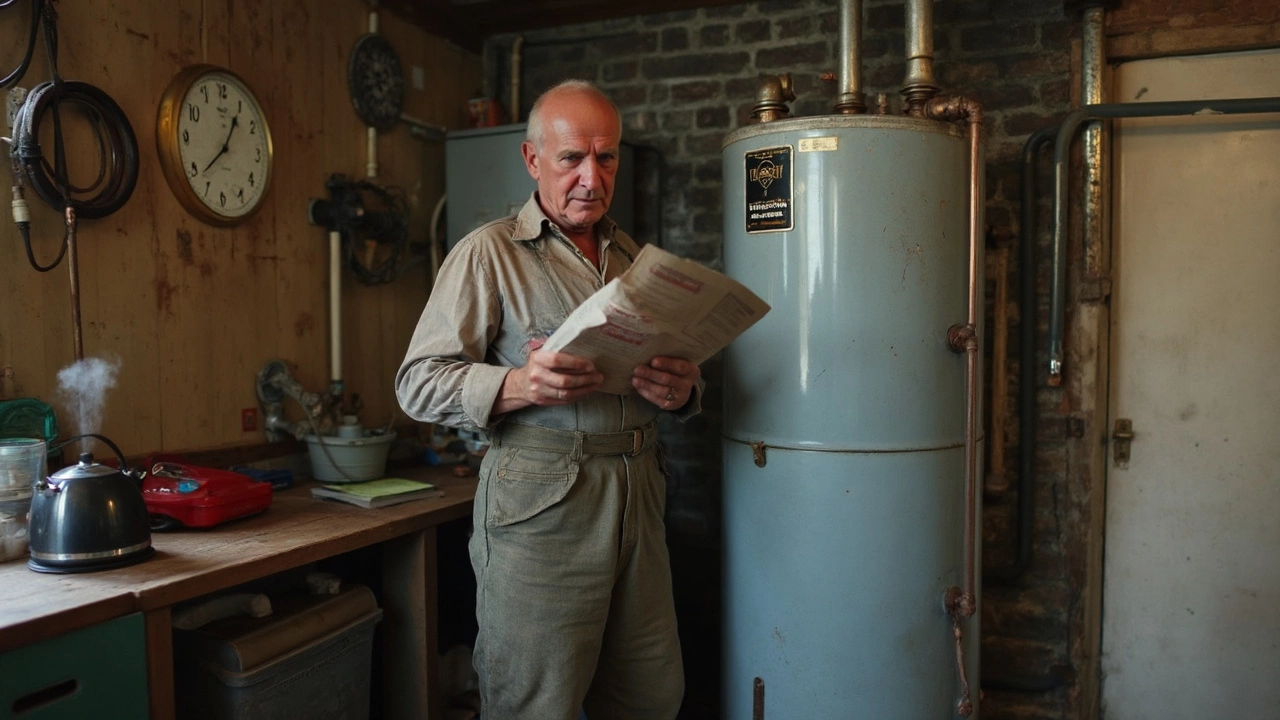Home Maintenance Tips & Guides
Keeping the house in good shape doesn’t have to be a headache. A few easy checks each month can stop small issues from turning into costly repairs. Below you’ll find straight‑forward advice on the most common appliances and systems – from hot water heaters to ovens – plus handy DIY steps you can try before calling a pro.
Spot the Signs Early
Every appliance gives you clues when it’s about to quit. A water heater that sputters or takes forever to heat up usually means sediment buildup or a failing thermostat. Listen for rattling in your boiler – that’s often a sign of air in the system or a loose part. If your oven heats unevenly or makes clicking noises, the heating element or control board could be failing.
Don’t ignore strange smells, leaks, or error codes. A dishwasher that leaves food residue might have a clogged spray arm, while a washing machine that vibrates loudly could need a new shock absorber. Quick visual checks, like looking for corrosion on electrical connections, save you time later.
DIY Fixes You Can Do Today
Most minor problems are fixable with basic tools. Resetting an electric hob is as simple as turning off the circuit, waiting a minute, and switching it back on – often clears a tripped safety lock. Replacing a faulty hob element involves unplugging the unit, removing the old element, and screwing in the new one. For a hot water heater that keeps tripping the reset button, check the thermostat and pressure relief valve; cleaning mineral deposits can restore normal function.
If your extractor fan is making a noisy whine, clean the blades and motor housing – dust buildup is a common culprit. A stubborn fridge that runs constantly may just need the condenser coils wiped down. And when a dryer takes forever to dry, cleaning the lint filter and vent can restore airflow and efficiency.
When you’re not sure, the “describe your appliance” tip helps the repair tech understand the problem faster. Note the make, model, exact symptom, and anything you’ve already tried. That way, you get a more accurate quote and fewer surprise parts.
Remember, safety first. If you’re dealing with gas ovens, boiler components, or any high‑voltage wiring, it’s worth calling a qualified electrician or plumber. Trying to replace an electric oven’s wiring without proper knowledge can be dangerous.
Regular maintenance is the cheapest insurance policy. Schedule a yearly boiler service, flush your water heater annually, and clean your oven’s interior after each big use. These habits extend appliance life and keep your energy bills in check.
Got a specific problem? Browse our collection of short guides – from “How to Replace an Electric Hob Element” to “When to Replace Your Oven” – and find the exact steps you need. With a little know‑how, you’ll keep your home running smooth and avoid unnecessary call‑outs.
When Should I Worry About My Boiler? Spotting Trouble Early
0 Comments
Not sure when to be concerned about your boiler? This article breaks down the red flags you can’t ignore, from weird noises to fluctuating heat. Learn when a quick DIY check is enough and when you need a pro—plus, useful tips to keep your boiler in better shape and avoid surprise breakdowns. Whether your heating is acting up or you just want peace of mind, you’ll get practical advice to stay one step ahead. Don’t let a small problem snowball into a costly emergency.
Read MoreHow Long Should It Take to Replace a Hot Water Heater?
0 Comments
Wondering how long it takes to change out a broken water heater? This article breaks down average replacement times, what can slow things down, and smart tips to help you avoid surprises. You’ll find out what to expect if you go DIY versus hiring a pro, plus a few tricks to save time (and headaches) along the way. If you want hot water back fast, you’ll want the facts before you call anyone or grab your tools.
Read MoreDo Electricians Fix Extractor Fans? The Real Answer
0 Comments
Extractor fans keep your kitchen and bathroom fresh, but what happens when they stop working? This article explains if electricians are the right people to call for extractor fan repairs and what to expect. You'll pick up signs of common extractor fan issues, tips for simple troubleshooting, and advice on when a professional is a must. Want your fan back to full power? Get clear, practical answers here. No technical jargon—just what you actually need to know.
Read MoreWhere Does a Water Heater Leak Most Often?
0 Comments
Is your water heater causing a splash in all the wrong places? Identifying where exactly a leak is coming from can save you time, money, and a cold shower. From valves and pipes to the tank bottom itself, each leak location can tell a story about what's happening with your heater. Find out the common places leaks occur, why they develop, and how you can tackle them effectively.
Read MoreDetecting a Faulty Water Heater Element: A Step-by-Step Guide
0 Comments
Recognizing when a water heater element is malfunctioning is crucial for maintaining a comfortable and efficient household. This article offers practical tips and step-by-step guidance to help you identify signs of a bad heater element. It covers visual inspections, how to use a multimeter for testing, and provides advice on potential energy cost implications. With these insights, homeowners can better maintain their water heaters and execute timely repairs.
Read MoreIs Replacing Your Boiler Worth the Effort? An In-Depth Look
0 Comments
Replacing a boiler can seem like a daunting project, but understanding the process and what it entails can make it less intimidating. From evaluating when replacement is necessary to considering the various options available, this article delves into the essentials of boiler replacement. Discover the key considerations and practical advice to help make your boiler replacement a seamless experience. Learn about different types of boilers and the implications of modern technology on this vital household component.
Read More




